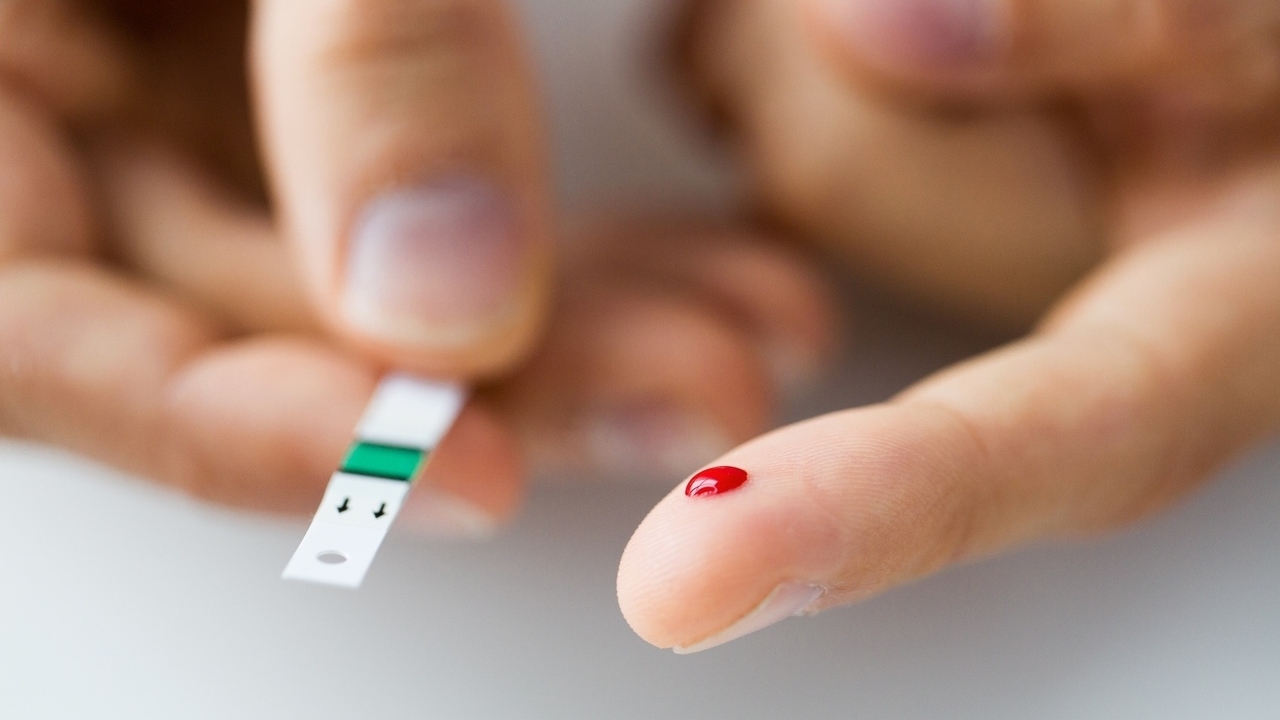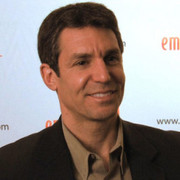 Andrej Shupilo ( Andrey)/PhotoSpin
Andrej Shupilo ( Andrey)/PhotoSpin
An earlier version of this column first appeared on the Huffington Post.
I understand from colleagues at LinkedIn that the very same "sugar is poison, fructose is toxic" message that has made videos go viral and books fly off shelves is wildly popular at the Aspen Ideas Festival this year. Since I have argued for reduced sugar intake the entire span of my two-decade long career in public health, I really hate the job of refuting this message -- again. I'm not sure I would bother if my only concern were that the message is wrong. The message is wrong -- sugar is not poison. But honestly, that's the least of my worries.
Still, it's a good place to start: The message is wrong. Sugar, in general, is not poison. Breast milk contains sugar. The human bloodstream contains sugar, at all times, and the moment it doesn't, we die.
Human beings have consumed sugar, albeit at low levels, since before our genus Homo, became our species, sapiens. Homo erectus and even earlier ancestors ate fruits and honey, too. Nor are we alone. I trust you, as I, have seen nature programs featuring the audacity of a bear braving bee stings to raid a honeycomb.
Innumerable people living today in diverse cultures eat sugar, albeit at reasonable levels, and suffer no harm. The famous Mediterranean and Blue Zone diets indelibly linked to more years in life, more life in years, and enviably low rates of obesity, diabetes, and chronic disease, also happen to be home to such indulgences as baklava.
So, sugar, clearly, is not poison. An excess of sugar in the body is harmful, certainly -- but so is an excess of oxygen, potassium, iron, water, or calcium. Too much of any of these can kill us -- but just like the glucose that floats in our blood, so can too little.
So the only rational message about the peril of sugar is that an excess is harmful. But that message is already taken. Paracelsus, the father of modern toxicology, famously said, "the dose makes the poison." And every nutritionist with half a wit or shred of legitimacy has noted for years that too much sugar is among the salient liabilities of modern eating. So while correct, that message is just not available to be claimed by a renegade genius. Besides, it lacks the visceral impact and conspiracy-theory connotations of "sugar is poison," and thus would ill serve the cause of creating the next great fad. Time-honored truths and common sense win in the end, but almost never dazzle. They lack the pizzazz to go viral.
If "sugar is poison" is wrong, perhaps "fructose is toxic" is still a viable claim? No, it's not.
When serious scientists, most recently the widely-respected Dr. David Ludwig at Harvard, but others before him, have reviewed the contention, they have found it exaggerated and distorted. The levels of fructose intake invoked to produce end-organ damage in provocative articles do not occur under real-world conditions. Pushed to comparable extremes of dosing, articles about oxygen would reach far grimmer conclusions, concluding the compound is not just toxic, but uniformly lethal over a span of mere days.
Nor under real-world conditions is there clear evidence that fructose is any more harmful than the other sugars with which it is all but inevitably associated. Fructose and glucose, both of which are found in table sugar, both of which are found in high-fructose corn syrup, are metabolized differently -- but the best assessments of the implications of that suggest that excesses of both or either can be harmful, as can the associated excesses of calories. Neither is uniquely toxic.
So fructose, which we get in isolation almost exclusively in fruit, is not toxic per se. Here, the valid message becomes that high-fructose corn syrup has long been a cheap source of copious additions of sugar to our food supply, contributing mightily to our excessive intake -- and that's bad. But again, that message is taken, and lacks sex appeal compared to "fructose is toxic."
As noted, though, the fact that the message is wrong is not what concerns me most. It's the wrong we are apt to do with the message -- wrong that can set public health back a decade -- that keeps me up at night.
For this is not a new blunder -- it is the quintessential blunder of public health nutrition for the past several decades, and in my opinion, we have a deluge of Frankenfood, and a roiling sea of obesity and diabetes to thank for it. We have been living, and alas dying, on a diet of the unintended consequences of variations on the theme of "there's just one thing wrong with our food" for years.
Consider what it means if, in fact, sugar is actually poison, and truly not just "a" thing wrong with our diets, but "the" thing.
It means that T. Colin Campbell, and all those who contend that eating too much meat is a problem, are wrong. If sugar is "the" problem, eating meat cannot be. It means that Walter Willett and others who have warned of the harms of trans fat were wasting our time.
It means that Dean Ornish and Caldwell Esselstyn and others must be wrong about the importance of dietary fats. It means that advocates for the Paleo diet, which certainly does not exclude fructose per se, are potentially misguided. It means that Atkins and all of the carb-cutting disciples to follow, were also wrong -- since a "just cut fructose" message makes no mention of the starches against which Atkins railed. It means that advocates for a Mediterranean diet, which as noted above is apt to include the occasional baklava, must be deluded.
It means that efforts by the Center for Science in the Public Interest to highlight the harms of excess dietary sodium are pointless. It means that David Jenkins and others who have demonstrated the importance of the glycemic load and index of not just sugar but starch-containing foods are wasting our time.
In fact, if any one of these -- or a long list of other -- concerns about modern eating is the one thing truly wrong with our food, then all of the others are, ipso facto, wrong. If any two of these are correct, then there is no longer just one thing wrong -- to the detriment of all that silver bullet, conspiracy theory sex appeal.
The reality of course is that sugar is not "the" thing wrong with our diet, it is just "a" thing wrong with our diet. And that has been getting attention to one degree or another for decades.
So that message lacks viral potential. When confronted with the fact that sugar is not the only problem, Dr. Lustig quickly concedes (as he does in his book, Fat Chance, which I reviewed for the journal Nature) and claims that his real message is "eat whole foods." But that's not his message, because others have long since laid claim to it. Most of us advocating for healthful eating espouse that message, so I'm not sure any one of us can claim it. If, however, we were going to attach it to any one name, the name would be Michael Pollan in return for penning "eat food, not too much, mostly plants." Certainly, Dr. Lustig would not even be a contender. The use of "sugar is poison" when eager to get attention, and "eat whole foods" when confronted by a jury of peers is a dubious effort to have fructose-free cake and eat it, too.
And only now we come to my gravest concern. Richard Dawkins, arguably the most influential evolutionary biologist since Darwin, has famously said, "there are many more ways to be dead than alive," referring to the challenges confronted by natural selection. We have our own corollary in public health nutrition: there are many more ways to make food bad, than good.
Only good food is good. It must be holistically good. Food that is bad in some way is, by definition, not good -- at least not entirely good.
But food that is bad in any way can be bad. Low-fat food can be bad. Low-carb food can be bad. Organic food can be bad (pure fructose could be organic). GMO-free food can be bad. Gluten-free food can be bad. And, of course, fructose-free, or for that matter sugar-free food, can be bad.
The issue here is that the sexy, contagious messages about nutrition are invariably of the utterly dumbed-down one-nutrient-at-a-time variety. A fixation on any nutrient property in isolation is a gilded invitation to the food industry to give us a whole new parade of products boasting that attribute, no matter what else might be in the mix.
Want an example? At the height of the Atkins' diet craze, I visited a prominent Entenmann's display in a local supermarket for a segment of ABC's 20/20, and found low-carb brownies. The first ingredient listed was partially hydrogenated oil, meaning theses brownies were a concentrated source of trans fat. The banner ad on the front noting that they were "low carb!" did not, of course, mention this.
Nor will "fructose-free" banner ads note the liabilities with which they are associated.
I have no doubt that in private corporate enclaves all around the foodscape, executives are not just preparing for the evolution of the "it's all because of fructose" era, but they are likely rubbing their hands together in glee. They may have been worried that having tried low-fat, low-carb, high-protein, and many other variations on the "just one thing" approach to eating better that we might now actually insist on food that is genuinely better overall. That would leave them no loopholes, and would constitute a true dietary revolution. There is nothing those profiting from the status quo like less.
Fortunately for food manufacturers, and unfortunately for eaters, we are being diverted just before the finish line to that Promised Land. We are now wandering off in another "just one thing" direction, and the opportunities to peddle a new variety of junk to us will proliferate accordingly. Make no mistake, America will still run on Dunkin' -- even if our donuts are now fructose-free. They will be sweetened with glucose, or aspartame, or combinations of these and other sweeteners. And, into the bargain, there will be a new breed of "now fructose free!" banner ads which will confer a halo effect, and invite us to eat twice as many.
Oh, yes -- we can forgo fructose, or just-cut-sugar, and get fatter and sicker. My worry is that's just what we are aiming to do.
Those who don't learn from the follies of history are destined to repeat them. Yes, some will get rich and famous along the way, every time. But one in three of us will get diabetes. And there you have my real concern with the "sugar is poison" boondoggle. It comes with a price tag public health simply cannot afford to pay
Dr. David L. Katz;
http://www.davidkatzmd.com/
For more by David Katz, M.D. click here.





Add a CommentComments
There are no comments yet. Be the first one and get the conversation started!